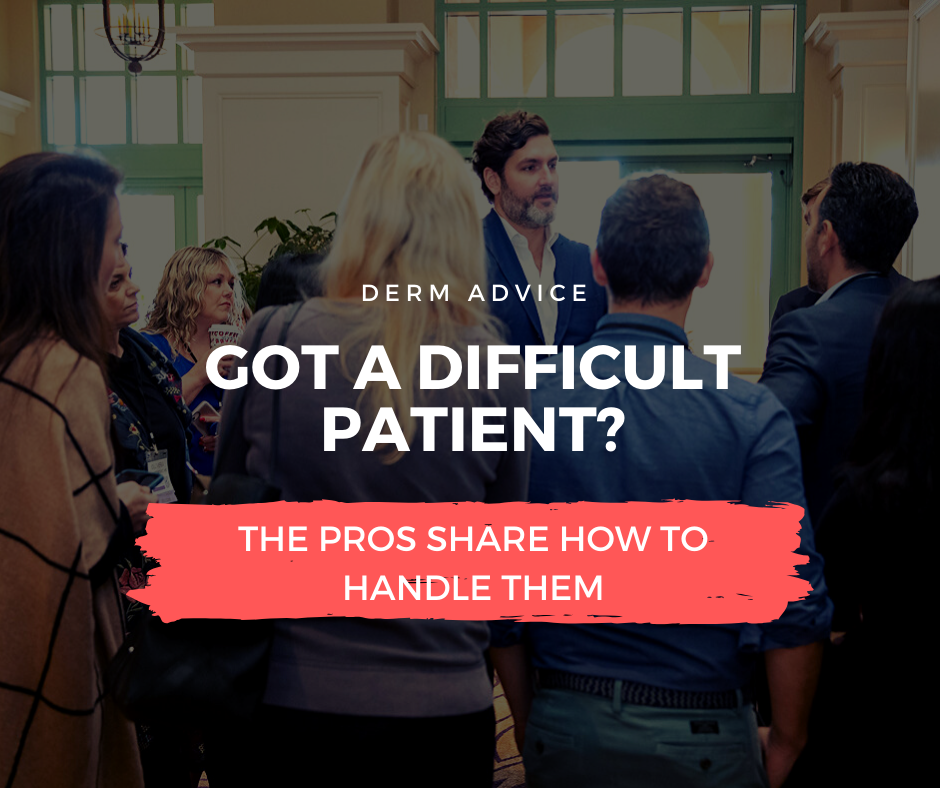A career in medicine starts with a vision of what it will be like to be a doctor—making a difference in the world, doing genuine good, helping people heal, or fostering dignity and compassion for those who are facing the end of their days. The privilege and ability to do these things for others comes at a great personal and financial cost. But we keep our gazes turned to the delayed gratitude we imagine from our future patients, who will be grateful, compliant, and just as kind to us as we are to them, as we minister care in our sparkling clean and freshly pressed white coats.
Cool story, bro.
In real life, patients can be difficult. What makes them difficult may vary—they may present a management or diagnostic dilemma, or they may simply possess a personality dilemma. As residents, we often have the luxury of seeking the assistance of an attending who, with their superior knowledge and authority, can help soothe an upset patient, uncover an overlooked exam finding that clarifies the diagnosis, or suggest a treatment not previously considered. But soon enough kids, YOU will be the attending, and depending on your practice environment, there may not be anyone who can assist you in the moment with the management of your patients. Or maybe you already are the attending, and find yourself still working to refine ways to meet the aforementioned challenges.
Fortunately, at the 2020 ODAC Dermatology, Aesthetic and Surgical Conference, I was able to track down several distinguished faculty who generously shared their advice on how to manage difficult patients. Their pearls of wisdom can be boiled down to 5 main tenets that dermatologists at all levels of training can keep in mind when confronted with patients who are challenging for a myriad of reasons.
 Address problems and concerns head on.
Address problems and concerns head on.
Don’t run away from the problem (a bad outcome or a difficult personality), instead address it head on. This often requires seeing a patient frequently, getting a lot of touch points, listening to their problems and concerns, and not running away from them. Bigger issues arise if you ignore a patient’s concerns. It doesn’t matter whether the patient caused their own adverse outcome, whether they had a known complication, whether they experienced a rare bad outcome, whether you think it is your fault or not—the biggest thing is to keep the patient close to you, see them frequently, and try your best to allay their concerns. – Terrance Keaney, MD
 It is ok to say “I don’t know” to a patient, but you need a plan in place for how you are going to find out.
It is ok to say “I don’t know” to a patient, but you need a plan in place for how you are going to find out.
Don’t feel like you need to have all of the answers for a patient during a visit (this frequently happens to me, even though at this point I am quite a niche expert!). Residents may tend to think: “If I tell them I don’t know, they’ll think I’m a bad doctor!” But this isn’t so. There are still some things that I don’t know because I see really complex diseases. You have to be comfortable with saying “I don’t know,” and cognizant of how to communicate that. You should share everything that you do know with the patient, speak confidently, and assure them that you will look for answers that you don’t currently have. For example, “I know that this is some hair disorder that is likely genetic. I’m going to go speak with a hair expert. I am going to give you my email, and I will be in touch with you with my thoughts within a week. And if I’m not sure how this should be managed, then I am going to refer you to this person.” Often I’ll give my email address to the patient, but if you’re not comfortable doing that, you should at least hold yourself to a deadline for following up. If you do this, no patient will be upset. – Yasmine Kirkorian, MD
 And to the previous point, reach out to your mentors, other experts in the field, and the literature when dealing with diagnostic or management challenges.
And to the previous point, reach out to your mentors, other experts in the field, and the literature when dealing with diagnostic or management challenges.
For medically complex patients that you are not sure how to manage, you just need to acquire more knowledge. You can definitely hit the books or email the world expert in whatever weird thing the patient has, and if you really can’t handle it, then refer (provided that you are not the last stop on the train at an academic practice). – Yasmine Kirkorian, MD
When you are starting your practice make sure to really stay in close touch with your mentors in each different discipline, whether it is medical, aesthetic, or surgical dermatology. Have their cell phone numbers so you can talk to them about complicated patients quickly, because sometimes you can’t wait a few days to send somebody an email because you really have to get the answer quickly. You want to be able to send these colleagues a picture, and receive immediate guidance on how to manage the patient. We do this all the time with our mentors, friends, and other people that we trained with. So try to put together a group of people who are really knowledgeable and accessible. – Joel Cohen, MD
 Work to understand and have empathy for your patient, and employ a variety of techniques to show it.
Work to understand and have empathy for your patient, and employ a variety of techniques to show it.
Don’t stand up with your arms crossed when a patient is expressing their concerns. The wrong body language can make a person feel like you are not being open and receptive. So I make sure I am sitting down, I make sure I am speaking very slowly, I don’t interrupt, I listen to their concerns, and I try very hard to assuage their concerns. – Joel Cohen, MD
Emotional intelligence is one of the most important things that a doctor needs to have. When you go into a room, you need to look at the patient and assess their mood. If someone is looking down or angry, that needs to be addressed. You can say: “You seem upset. Did something happen?” Sometimes they are upset for reasons unrelated to you, but sometimes it is related to your practice. In the latter case, reassure the patient any practice-related offense is not acceptable, sincerely apologize, promise them that you are going to address the issue, and try to make amends if possible (for example, validate parking). All of this will help to diffuse tension. You also need to then address any issues with your practice to minimize the chances that a similar event will happen in the future and make another patient upset.
I also think people get upset when they feel unheard. Many patients will wait months to see you only to have you come into the room, blow past what they are trying to say, interrupt them, deliver a quick diagnosis, then leave. I think that time is what we often don’t give people, and this is guaranteed to lead to a bad interaction. Patients expect to have a conversation, even if you know you are looking at a seborrheic keratosis or a hemangioma as soon as you walk into the room. You still need to let the patient voice their concerns and give you their history without interrupting them (which is something that we are too often guilty of doing). Yes, gentle redirection sometimes needs to happen, but this should be done tactfully: “Let me make sure I understand…” Once the patient is finished speaking, you can look at them quickly, give your diagnosis and a brief explanation, and wrap up the visit.
Finally, if a patient is still very hostile, I think that you just need to keep countering with kindness. Kindness and endless patience actually work. I teach my residents to wait out the hostile patient in this way, because eventually the rage will dissipate. – Yasmine Kirkorian, MD
 Define boundaries to protect your own emotional well-being.
Define boundaries to protect your own emotional well-being.
In general, the patient is always right but you also have to have your own line that you won’t cross. If a patient is pushing you to do something that you are uncomfortable with, or if you feel that something is unethical, remember that you are the only one who is going to have to look yourself in the face and reflect upon this. If a patient is difficult and says they refuse photographic documentation that you think is crucial, then you can refuse to treat them (I use this example because I’ve been burned by that in the past). Don’t be afraid to dismiss a patient from your practice. If somebody is so difficult and so rude to you and your staff, you are not obligated to treat them. As much as the patient comes first, you also have to protect your own mental well-being if you want to stay happy in what will hopefully be a long career. If you have people who are rough on you every day, it is going to be easy to burn out. I think you really just have to be conscious of your own boundaries and protect your own well-being for the long run. – Jeremy Green, MD
Did you enjoy this post? Find more on Navigating Your Career here.
Next Steps in Derm is brought to you by SanovaWorks.


